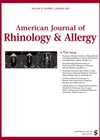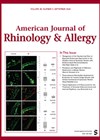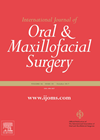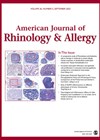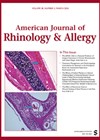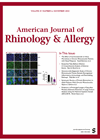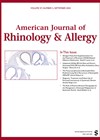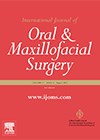
Journal Reviews
Management of traumatic facial palsy
Most traumatic facial palsies resolve with conservative management. Early facial nerve decompression is indicated in acute complete traumatic facial palsies. House–Brackmann (HB) classification is used universally to classify the severity of the facial nerve injury, but few centres have availability...
Posterior nasal neurectomy – long-term data shows tailing off of benefits but still improvement after three years
It is well understood that allergic rhinitis has a very detrimental effect on quality of life for afflicted patients. This study looks at patients with allergic rhinitis but no other associated sinonasal or respiratory diagnoses. Patients with a history of...
Congenitally anosmic patients do have fewer olfactory foramina
It has been previously established that patients with Kallman’s syndrome (very much associated with anosmia) have a similar number of cribriform plate foramina when compared to controls. As non-invasive CT assessment of the cribriform plate is now possible in cadavers,...
A useful adjuvant treatment for SNAC or IP
5-Fluorouracil (5FU) is a topical preparation used in the treatment of various dermatological, ocular and gynaecologic malignant and pre-malignant conditions, and this literature review looks at the efficacy of 5FU in treating inverted papilloma and sinonasal tumours. The authors cite...
Intra orbital treatment to save the eye!
Invasive fungal sinusitis can be a devastating condition, and accepted management is surgical debridement of infected tissue, systemic antifungal treatment and reversal of immunosuppression. Orbital involvement is common, affecting up to 75% of cases, and in advanced disease orbital exenteration...
Put the maxilla in the right place
This is a paper from Singapore where they attempted to validate the position of the maxilla in the sagittal plane against several reference lines arising from the position of the forehead in orthognathic surgery. The position of the maxilla was...
Rosemary oil to aid surgical healing?
There are a multitude of ways in which to damage the nasal epithelium, whether iatrogenically through nasal surgery, via injury, allergy, infection or inhalation of an environmental pollutant. This study looks at the role of the herb rosemary, in the...
An effective treatment for post Covid-19 smell loss?
It is well understood that calcium levels in the nasal mucous affect the ability to smell, with higher levels having a negative impact, and some studies have shown increased calcium levels in patients suffering with Covid-19-related olfactory dysfunction. Calcium chelating...
Is GERD linked to CRS?
We are all well aware that both chronic rhinosinusitis and reflux are prevalent in our populations. This meta-analysis looked at 25 studies investigating the association between GERD, LPR and CRS, therefore evaluating more than 117,000 patients. The results are fascinating...
Balloon dilatation of the eustachian tube - largely very safe but not entirely without risk
Consent is a fundamental part of our daily working lives. This is something as simple as consent to examine a patient, consent to undertake a procedure as minor as taking blood, through to consent for a major operation. Whatever the...
A new treatment for smell loss?
It has been well established that smell training can be effective in the recovery of smell function post Covid-19 infection, and many other treatment modalities have been assessed. There have been limited studies to date evaluating the effects of dietary...
Painful temporomandibular joints
This paper is a meta-analysis of randomised controlled trials comparing arthrocentesis with conservative management in painful and restricted mouth opening temporomandibular joint symptoms. Temporomandibular joint dysfunction comprises a spectrum of disorders commonly involving facial pain and loss of oral function...


